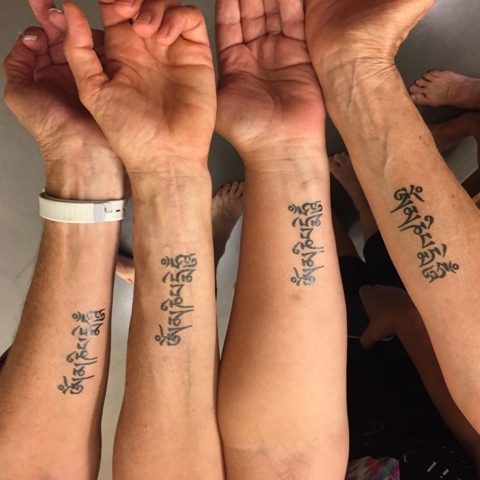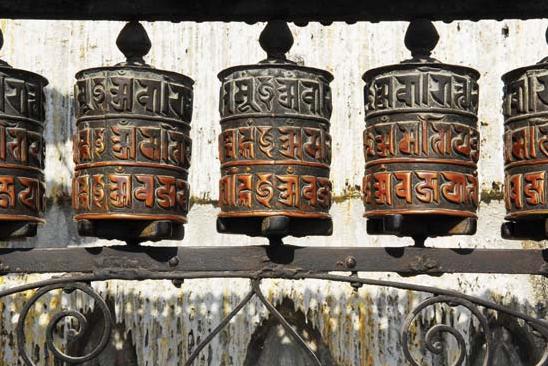Om Mani Padme Hum as Temporary Tattoos
My friend and yoga student, Dan Telep died on August 5th, 2014, a few days before his 80th birthday. He went out for a bike ride and that day and never came back. He died doing one of the things he loved doing. He said his doctor told him that if he was still riding his bike at the age of 80, the odds were that he would probably die on his bike. I’m sorry to have lost Dan, but I am glad that he went out the way he did, full of life and adventure.
The mantra I have chosen for the month of August is in memory of my friend. Dan told me that he chanted “Om Mani Padme Hum” while riding his bike. It helped him push the pedals and get up hills. It was Dan that inspired me to ride the MS City to Shore Bike Ride. I had always wanted to do it, but I always found an excuse to not do it: “It’s too far. What if I can’t do it? What if it rains, or is cold, or, ….” Losing Dan motivated me to stop procrastinating and get going!
This chant is often called “The Jewel in the Lotus” because the mantra is said to contain the essence of the teaching of the Buddha which is that life is filled with suffering. Once we really learn that suffering exists, we can look deeper and discover its cause. When we discover that the cause is dependent on certain conditions, we can explore the idea of removing those conditions. This is the process of becoming enlightened; to understand what we need to do in order to save ourselves and others from suffering.While this mantra has no direct translation, its six syllables are said to represent The Six Paramitas of the Bodhisattvas, or The Six Perfections. These are six lessons we need to learn to overcome suffering:
The first syllable, Om, is supposed to bless you and help you achieve perfection in the practice of generosity. Ma helps perfect the practice of ethical behavior. Ni helps achieve perfection in the practice of tolerance and patience. Pad helps to achieve the perfection of perseverance. Me helps achieve perfection in the practice of concentration and the last syllable, Hum, helps achieve perfection in the practice of wisdom.
Chanting this mantra with dedication and devotion can transform your impure body, speech and mind into the pure body, speech and mind of a Buddha.
Om Mani Padme Hum is often the mantra depicted on Buddhist prayer wheels.
P.S. People have been asking me for links to the mantras I have been playing in class. Here they are:
The first one is the version by M.C. Yogi called Prayer Wheel.
The second one is Secret Sounds by Veet Vichara and Premanjali




